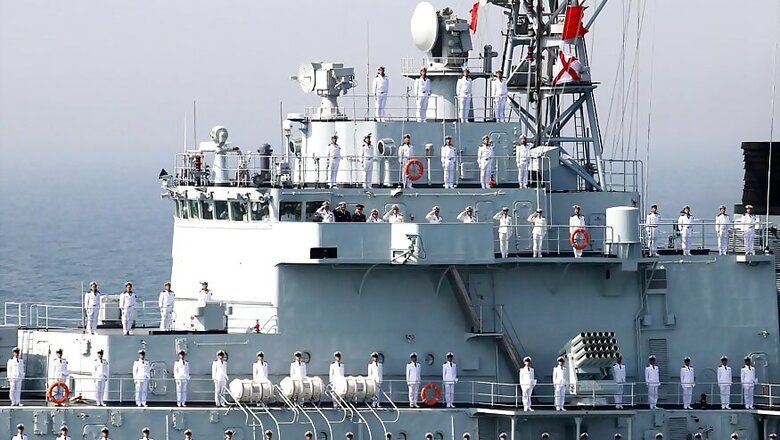
views
Washington, United States: China's military might is growing at such a pace that it could soon rival American power "across almost every domain," a top US military official said Wednesday.
Admiral Harry Harris, who heads up the military's enormous Pacific Command (PACOM), warned lawmakers they must be wary of Beijing's investments in traditional assets as well as its development of a new wave of technologies such as hypersonic missiles and artificial intelligence.
"China's impressive military buildup could soon challenge the United States across almost every domain," Harris told the House Armed Services Committee.
"Key advancements include fielding significant improvements in missile systems, developing fifth-generation fighter aircraft capabilities, and growing the size and capability of the Chinese navy to include their first overseas base in the port of Djibouti."
He added: "If the US does not keep pace, PACOM will struggle to compete with the People's Liberation Army on future battlefields."
Harris, who has been nominated to become the next US ambassador to Australia, has led PACOM for more than two years.
He also addressed politicians' concerns about the threat of a missile strike from North Korea.
The Pentagon can, as of now, block any missile coming from the regime of Kim Jong Un, he said, but warned America needs to adapt to the rapid advances in Pyongyang's capabilities.
"Given what we think the North Korean capability might be in terms of their missiles in three or four years…. I think we must continue to improve our missile defenses," he said.
Harris said he supported a study to consider whether America should install ground-based missile interceptors in Hawaii, augmenting the batteries already in place in Alaska and Hawaii.
The admiral said Kim's long-term goal is not merely to ensure the survival of his regime, but to control the entire Korean peninsula.
"He is on a path to achieve what he feels is his natural place, where North Korea's natural outcome is a unified Korean peninsula that's subject to (Kim) and the communist regime," Harris said.
Korea experts frequently say Kim's motivations for building a nuclear deterrent are somewhat rational because he sees it as protecting his regime, even though his missile push has put him at risk of conflict with the United States.


















Comments
0 comment